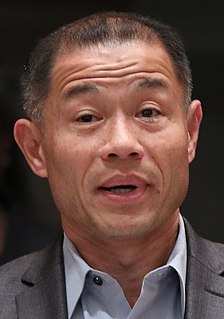A Quote by Mo Ibrahim
Positive market incentives operating in the public interest are too few and far between, and are also up against a seemingly never-ending expansion of perverse incentives and lobbying.
Related Quotes
I believe in market economics. But to paraphrase Churchill - who said this about democracy and political regimes - a market economy might be the worst economic regime available, apart from the alternatives. I believe that people react to incentives, that incentives matter, and that prices reflect the way things should be allocated. But I also believe that market economies sometimes have market failures, and when these occur, there's a role for prudential - not excessive - regulation of the financial system.
Urban America has been redlined. Government has not offered tax incentives for investment, as it has in a dozen foreign markets. Banks have redlined it. Industries have moved out, they've redlined it. Clearly, to break up the redlining process, there must be incentives to green-line with hedges against risk.
There is a sense in which, like, it could be the case that the incentives of running for president and the incentives of getting maximum attention for yourself, sometimes align, and at a certain point, they stop aligning, and you just keep going with the incentives for maximum attention for yourself.
If you go back to Adam Smith, you find the idea that markets and market forces operate as an invisible hand. This is the traditional laissez-faire market idea. But today, when economics is increasingly defined as the science of incentive, it becomes clear that the use of incentives involves quite active intervention, either by an economist or a policy maker, in using financial inducements to motivate behavior. In fact, so much though that we now almost take for granted that incentives are central to the subject of economics.
The market, if it can be kept honest and competitive, does provide very strong incentives for work effort and productive contributions. In their absence, society would thrash about for alternative incentives-some unreliable, like altruism; some perilous like collective loyalty; some intolerable, like coercion or oppression.
It's time to admit that public education operates like a planned economy, a bureaucratic system in which everybody's role is spelled out in advance and there are few incentives for innovation and productivity. It's no surprise that our school system doesn't improve: It more resembles the communist economy than our own market economy.



































